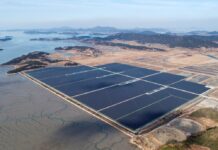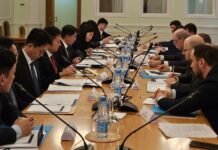
The World Bank calls the Korean economy a “growth superstar” in avoiding the middle-income trap. Shown is a bird’s-eye view of Songdo International Business District of Incheon’s Yeonsu-gu District. (Incheon Tourism Organization)
By Israa Mohamed
The World Bank has hailed Korea as a “standout economy” in overcoming the “middle-income trap.”
The Washington-based bank said this on Aug. 1 in its World Development Report 2024 on the trap. The middle-income trap is a phenomenon when a developing economy sees growth stagnate after reaching middle-income status and fails to attain the level of high income.
The report said, “In 1960, (Korea’s) per capita income stood at just $1,200. By end of 2023, that number had climbed to $33,000.”
Calling Korea a “growth superstar,” it added, “Korea’s remarkable transformation from a postconflict country in the 1950s to an economy powered by the infusion of ideas from abroad to one that is transitioning to innovation at the global frontiers of technology makes its economic history required reading for policy makers in any middle-income country.”
Emphasizing the “3i strategy” of investment, infusion and innovation to overcome the trap, the report said, “South Korea is a standout example in all three phases of the 3i strategy.”
Korea expanded investment in infrastructure by opening its financial market and attracting foreign capital, it added, and raised productivity through aggressive investment in areas like introduction of foreign technology, research and development, and education.
The report said the 1997-98 Asian financial crisis offered the opportunity to transform the situation into opportunity by reforming finance and conglomerates, alleviating market collusion and concentration of power, giving rise to a competitive market and developing domestic venture companies.
Saying the secrets to the country’s success were higher investment in education through budget allocation and compulsory schooling in the 1950s and rising female participation in the labor force, it added, “It would be a miracle if today’s middle-income economies manage to do in 50 years what Korea did in just 25.”
ess8@korea.kr























